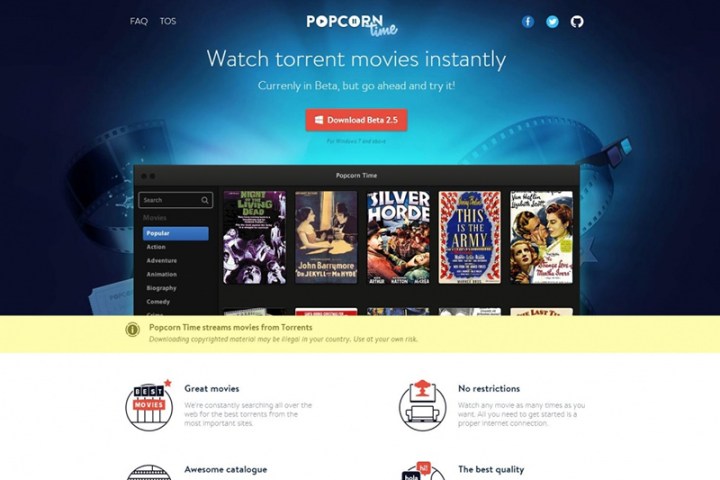
In a statement sent to TorrentFreak, some of the people behind Popcorn Time say that the studios should introduce a more compelling service of their own, unfettered by geographical restrictions and variations in pricing. These kind of barriers put in place by Hollywood have been called out in the past by Netflix and various other parties.
“People are ready to pay a fee, but a lot of them currently refuse to pay for a petty catalog with country-specific restrictions,” reads part of the statement. “Why would people in France wait two years to see a movie that’s already being broadcasted in the U.S., when they both are paying almost the same amount of money?”
“The price can also be a hurdle for some people: $20 a month is not the same in Uganda and the United States. But obviously, the most problematic issue is the complete lack of legal availability in some places.”
Give the masses what they want in any place and at any time, for a reasonable fee, and those people won’t turn to piracy, insists the Popcorn Time team. While it could be argued that the software itself is a legitimate enterprise, there’s no doubt the vast majority of its users run it to break copyright law and watch movies and television shows free of charge.
“Maybe it is time to consider the will of the people and offer them a legal, complete and useful service, no matter where they were born, instead of trying to punish people for … well, for wanting the see the content artists and industries are offering,” the Popcorn Time statement concludes. “Currently, piracy is fulfilling the demand of the people because the industry fails at the transition into the modern age. We think it’s as simple as that.”


